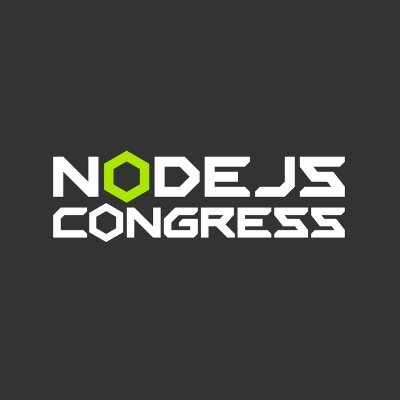1. Introduction to Machine Learning in Node.js
Welcome to our talk on incorporating machine learning to your Node.js applications. Learn how to take your Node.js application to the next level with machine learning. Introducing myself as Marian Villa, Senior Full Stack Product Design at Nodesource, I'm excited to share my knowledge and insights on incorporating machine learning into Node.js applications. Let's get started!
Hi folks! Welcome to our talk today on incorporating machine learning to your Node.js applications. We're living in an era where machine learning is transforming the way we interact with technology. So, sit back, relax, and get ready to learn how you can take your Node.js application to the next level with machine learning.
But first, let me introduce myself. My name is Marian Villa and I'm excited to be here with you today. I'm Senior Full Stack Product Design at Nodesource and I'm passionate about combining technology with community development. I'm honored to be sharing my knowledge and insights on incorporating machine learning into Node.js applications with you. I hope that through our discussion today, we do gain valuable insights into how machine learning can be integrated into Node.js applications to create more efficient and effective solutions. So, without further ado, let's get started.
2. Introduction to Machine Learning
As Colombians, we are proud of the diversity that exists in our country, including the many different shades of skin that can be found across our communities. Machine learning is quickly becoming a critical tool for developers to incorporate into their Node.js applications. Incorporating machine learning into Node.js applications comes with its own set of challenges and best practices. Join me as we explore the secrets to making the perfect arepa.
I'm from Colombia, South America. As Colombians, we are proud of the diversity that exists in our country, including the many different shades of skin that can be found across our communities. On the Caribbean coast and the Andes Mountains, we have a range of skin tones that reflect our unique histories and cultures.
Yes, I am Colombian and Latina. And with this clear, let's jump to the main theme of our presentation. As more and more applications become reliant on data-driven decision-making, machine learning is quickly becoming a critical tool for developers to incorporate into their applications. Node.js, with its speed, scalability and ease of use, has become a popular choice for building this type of applications. However, incorporating machine learning into Node.js applications comes with its own set of challenges and best practices.
So as Colombians and also Venezuelans, there is one thing that we all know and love, and that's arepas. In fact, according to the Colombian Academy of Gastronomy, these are 75 different varieties. So personally, I firmly believe that nothing can leave your mood like a warm, gooey, Colombian cheese arepa. That's why I'm excited to share with you some tips and best practices to help you make the perfect machine learning integration every time. And with these tips, your Node.js applications will be an absolute delight. We will say un encanto. So wherever you are, a seasoned pro or a beginner, join me as we explore the secrets to making the perfect arepa. Let's get started.
3. Implementing Machine Learning in NodeJS
Implementing machine learning can be daunting, but don't worry. Let's dive in. Carefully consider the problem you want to solve and choose the right machine learning framework for NodeJS. Use TensorFlowJS to create and train a simple sequential model. Predict outputs for a linear function.
So implementing machine learning can be a daunting task, especially if you are not familiar with the technology, but don't worry. We're here to help. So let's dive in.
The first step will be discussing it so carefully, considering the problem you want to solve with machine learning. Before diving into implementing machine learning algorithms in your NodeJS application, it is essential to have a clear understanding of the problem you want to solve and the approach you take to train and test your machine learning model. By taking the time to carefully consider the problem, you'll be able to identify the appropriate machine learning algorithms and techniques to use.
Many machine learning frameworks are available, each with its own strengths and weaknesses. When choosing a machine learning framework for NodeJS, you need to consider all the factors such as ease-of-use, community support, and the specific needs of your application. Some popular machine learning frameworks for NodeJS include TensorFlowJS, FrameJS and ML5JS. I want to explain this with a simple code example. This is writing in JavaScript and use the TensorFlowJS library to create and train a simple sequential model with one dense layer. The model is then used to predict a new input value. With this library, I create, compile, and train a simple neural network that's a problem I want to solve that can predict the outputs for a linear function.
4. Tips for Incorporating Machine Learning
Start with a simple machine learning model to better understand how it works and integrate it into your Node.js application. Gradually add complexity and redefine your algorithm. Use the brain.js library to create a neural network. Train it on a small dataset and predict new values. Ensure the data you use is representative and of high quality. Clean, transform, and pre-process the data before feeding it into your model.
So the first thing is the problem you want to solve. The second tip will be a start with a simple machine learning model. So starting with a simple model is important when incorporating machine learning into your Node.js application. This will help you better understand how machine learning works and how to integrate it into your application.
Once a basic model works, you can gradually add complexity and redefine your machine learning algorithm. Let's jump again to a code example. So this code is written in JavaScript and use the brain.js library to create a simple neural network with one hidden layer. So the network is then trained on a small input and output values data set and use the predict a new input value.
Moving to our third tip, which is to use the right data, as we already discussed the success of your machine learning model depends heavily on the quality of the data you use to train it. So it's important to ensure that the data you are using is representative of the problem you are trying to solve. And this is of high quality. So to ensure that your data is of high quality, it's often necessary to clean and pre-process it before feeding into your model. This involves removal, duplicate, dealing with missing values and transforming the data into a format that is suitable for your model. So clean, transform and pre-process your data before feeding into your model. That's a good advice.
5. Tips for Machine Learning Models
Monitor and evaluate your machine learning models using accuracy, precision, and recall metrics. Consider scalability by using cloud-based services and optimizing your application. Use transfer learning to reuse pre-trained models. Test and monitor your machine learning models to ensure performance, accuracy, and reliability.
The tip number 4 would be monitor and evaluate your machine learning models. Machine learning models can be difficult to debug, so monitoring and evaluating models as it runs is important. Use accuracy, precision and recall metrics to measure your model performance. Keep an eye out for any issues or errors during training or deployment. One of the best ways to evaluate your model is using accuracy, precision and recall metrics. These metrics can help you understand how well your model is performing and whether or not it is meeting your expectations.
The tip number 5 is think about scalability. As you know, machine learning models can be computationally intensive so it's crucial to consider scalability when incorporating machine learning into your Node.js application. One option is to use cloud-based services such as AWS, GCP or Azure to help your machine learning models. These services can provide the computational power needed to run your machine learning models without putting a strain on your application resource. Another important aspect of scalability is making sure that your application can handle the increases logged that machine learning processing may require. You may need to optimize your application code or infrastructure to ensure that it can handle the increased computational demands.
And the tip number 6 will be use transfer learning. So transfer learning allows you to reuse pre-trained machine learning models for a new task. This can save time and computational resource compared to training a new model from scratch. Use transfer learning in your Node.js application to speed up your machine learning development process. Finally, I know it's supposed to be the end and we don't talk about Bruno, but testing and monitoring your machine learning model is critical to ensure data performance, accuracy and reliability. So consider using our product in Solid consult to monitor your Node.js application to ensure the quality of your machine learning models. Now you're ready to fly on a donkey unicorn. Just kidding. So let's summarize the tips. So the first step choose the right machine learning framework. The second will be a start with a simple machine learning model. The third use the right data. The four is monitor and evaluate your machine learning model. The five, think about scalability. The six will be use transfer learning and the tip number seven is test and monitor your machine learning models. Surely you'll learn something to do your own app reports.



























Comments